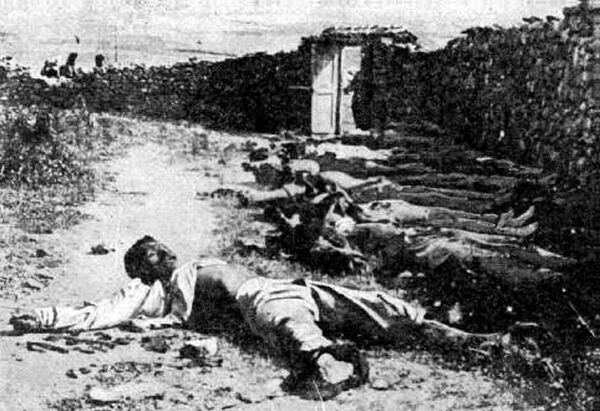 The Bush administration was persuaded to withdraw its nomination of Richard Hoagland as the U.S. ambassador to Armenia. Senator Robert Menendez, the democratic senator for New Jersey, blocked Mr. Hoaglands nomination from proceeding to a confirmation hearing because of his refusal to recognize the World War I massacre of Armenians as genocide. In comments, Menendez stated that “the State Department and the Bush administration are just flat-out wrong in their refusal to recognize the Armenian genocide.”
The Bush administration was persuaded to withdraw its nomination of Richard Hoagland as the U.S. ambassador to Armenia. Senator Robert Menendez, the democratic senator for New Jersey, blocked Mr. Hoaglands nomination from proceeding to a confirmation hearing because of his refusal to recognize the World War I massacre of Armenians as genocide. In comments, Menendez stated that “the State Department and the Bush administration are just flat-out wrong in their refusal to recognize the Armenian genocide.”
Representative Adam Schiff (D – California) noted that in previous testimonies, Mr. Hoagland “continued to deny that the massacre of a million and a half Armenians between 1915 and 1923 was genocide.” On April 24th, 1915, members of the Armenian elite were rounded up and executed at the behest of the Ottoman government. This led to a watershed of persecution against Armenians, as the government forced the deportation of most of their population. A special unit known as the Teskilat-i Mahsusa, or Special Organization, had the mission to exterminate the Armenians. According to Vahakn Dadrian, a preeminent scholar on the Armenian genocide, The Special Organization's mission "was to deploy in remote areas of Turkey's interior and to ambush and destroy convoys of Armenian deportees [The Special Organization's] principal duty was the execution of the Armenian genocide." It is estimated that millions of Armenians died of starvation and disease during their forced deportation.
There were six domestic tribunals assembled to assess the atrocities, resulting in the hanging of one senior official. The tribunals, however, were viewed as insufficient due to unorthodox judicial proceedings and the absence of official documents from those allegedly responsible for the massacres.
The Bush administration has been hesitant to embrace the term “genocide” to describe the atrocities against the Armenians because of fragile diplomatic relations with Turkey.